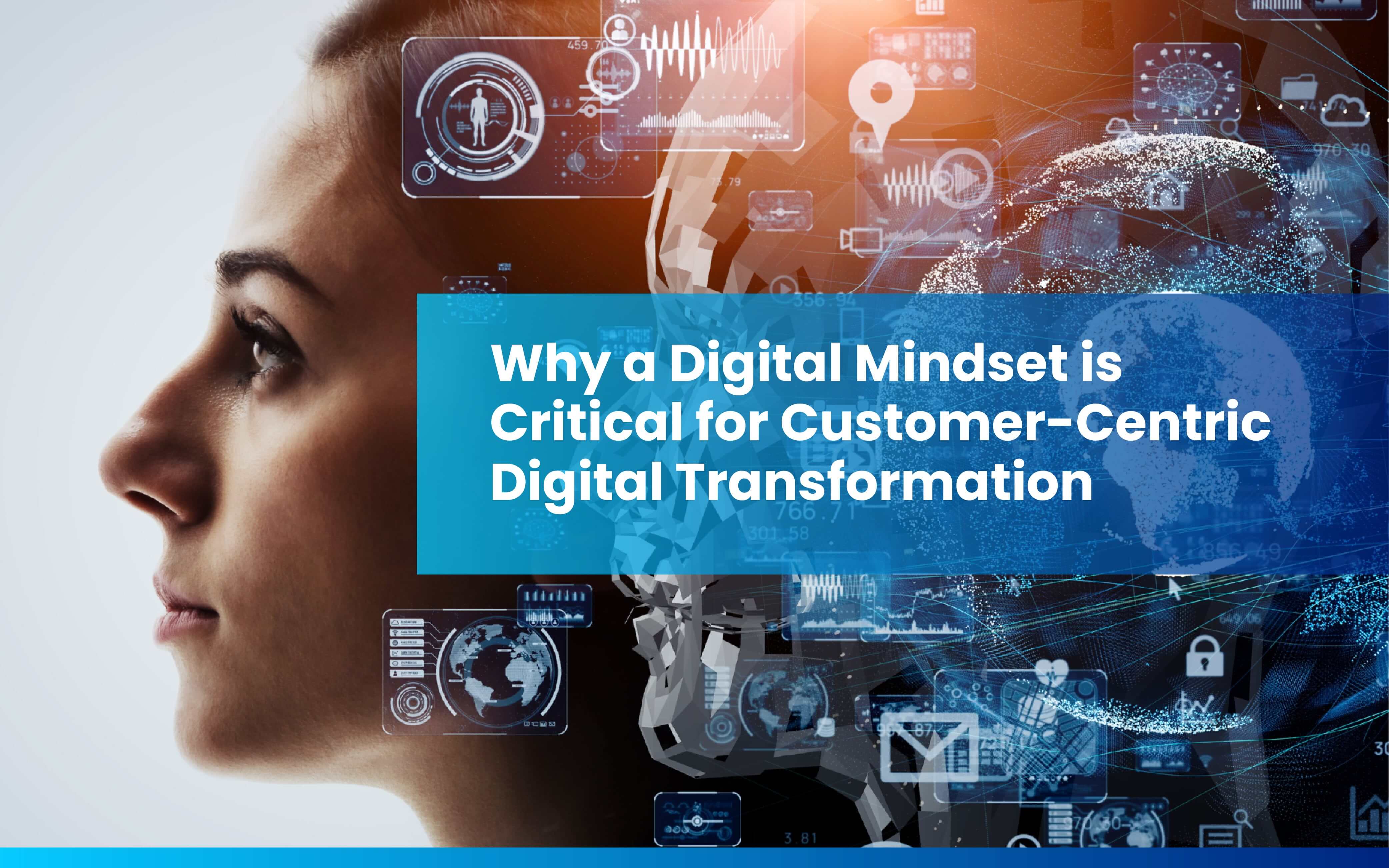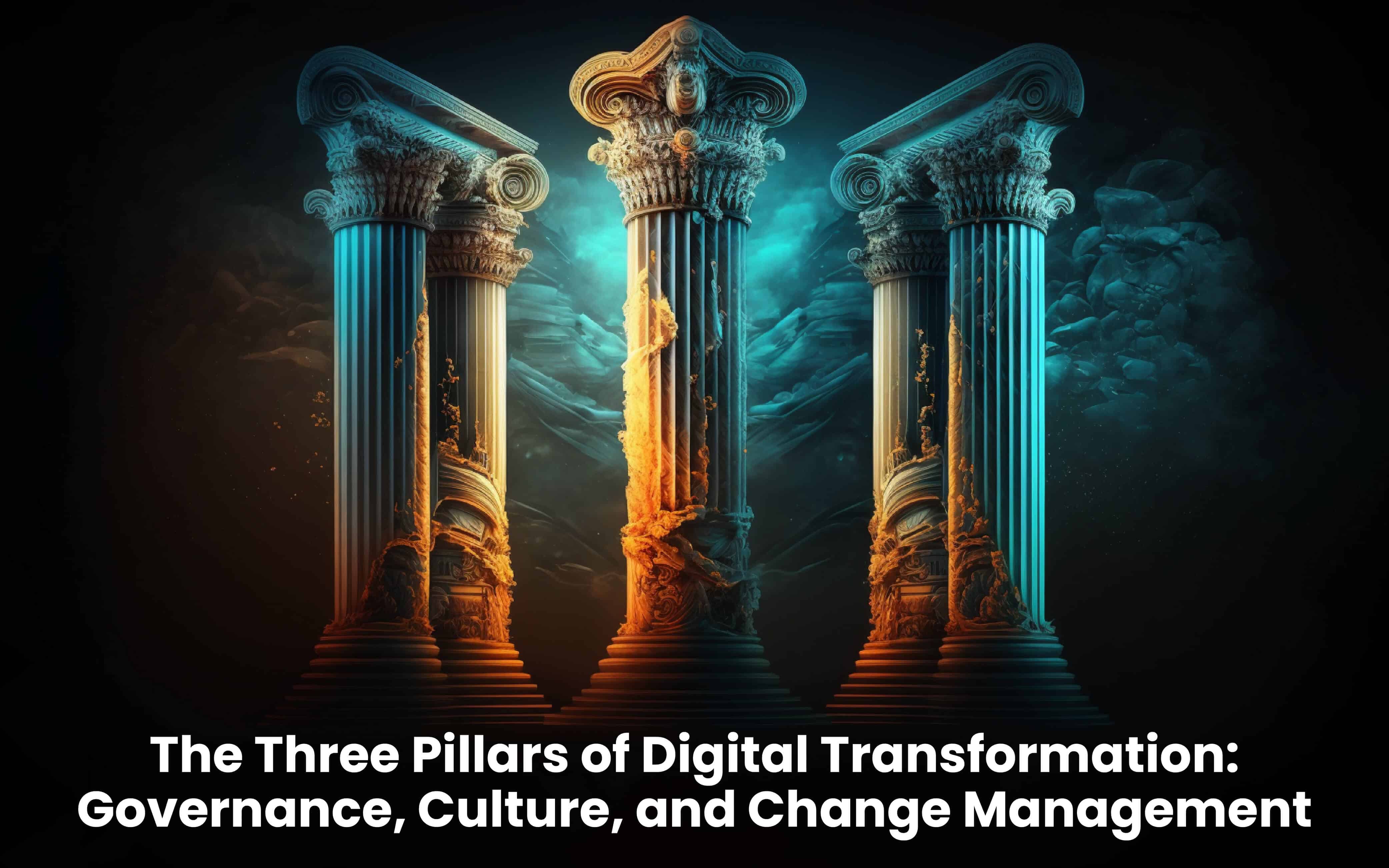Blogs
To know about all things Digitisation and Innovation read our blogs here.
Digital Transformation
Why a Digital Mindset is Critical for Customer-Centric Digital Transformation?
SID Global Solutions
15 February 2023

Introduction
Digital transformation is the integration of digital technology into all aspects of an organization, fundamentally changing how it operates and delivers value to customers. It involves the use of digital technologies such as artificial intelligence, the Internet of Things, and cloud computing to transform business processes, create new business models, and improve customer experiences. However, digital transformation is not just about technology; it requires a fundamental shift in mindset and culture to succeed.
A digital mindset is the ability to think and act in a way that enables organizations to leverage the power of digital technology to create value for customers and stakeholders. It involves a willingness to experiment, take risks, learn from failure, and continuously improve. A digital mindset is essential to digital transformation because it enables organizations to be agile, innovative, customer-centric, and data-driven.
Also Read: 6 Essential Tools for a Successful Digital Transformation
In this guide, we will explore why a digital mindset is the key to digital transformation and how organizations can foster a digital mindset to drive success.
Why a Digital Mindset is the Key to Digital Transformation
- Agility: Digital transformation requires organizations to be agile and responsive to change. A digital mindset enables organizations to embrace change and adapt quickly to new technologies, customer needs, and market trends. It allows organizations to be proactive in their approach to digital transformation rather than reactive. By fostering a digital mindset, organizations can respond to changing customer needs, competition, and market trends in a timely and effective manner.
- Innovation: A digital mindset fosters innovation by encouraging experimentation and risk-taking. Digital technologies offer new opportunities for innovation and disruption, but they also require a willingness to experiment and take risks. A digital mindset enables organizations to embrace new ideas and technologies, and to experiment with new business models, products, and services. It allows organizations to innovate faster and more effectively by leveraging digital technologies.
- Customer-Centricity: Digital transformation is ultimately about improving the customer experience. A digital mindset enables organizations to become more customer-centric by understanding and meeting the changing needs of customers. By leveraging digital technologies, organizations can gain insights into customer behavior and preferences, and use this information to personalize products and services, improve customer service, and create new customer experiences.
- Data-Driven Decision Making: Digital technologies generate vast amounts of data that can be used to inform decision-making. A digital mindset enables organizations to make data-driven decisions by leveraging data analytics to gain insights into customer behavior, business processes, and market trends. By using data to inform decision-making, organizations can make more informed decisions, optimize business processes, and improve customer experiences.
- Collaboration: Digital transformation requires collaboration across departments and teams. A digital mindset fosters collaboration by breaking down silos and encouraging cross-functional teams to work together. By collaborating, organizations can leverage the expertise of different teams to create new ideas, products, and services. It also enables organizations to share knowledge and best practices, and to learn from each other.
Also Read: Successful Digital Transformation Strategies Focus on People, Not Technology
How to Foster a Digital Mindset
- Leadership: Leadership plays a critical role in fostering a digital mindset. Leaders must set the tone for the organization by demonstrating a willingness to embrace change, take risks, and experiment with new ideas and technologies. They must also communicate the importance of a digital mindset to the organization and provide the necessary resources and support to foster it.
- Culture: Organizational culture plays a key role in fostering a digital mindset. A culture that values innovation, experimentation, and learning from failure is essential to a digital mindset. Organizations must create a culture that encourages risk-taking, rewards innovation, and fosters collaboration across departments and teams.
- Talent: Organizations must attract and retain talent that embodies a digital mindset. This includes individuals who are comfortable with new technologies, have a passion for innovation, and are willing to experiment and take risks. Organizations must also provide opportunities for continuous learning and development to ensure that employees have the skills and knowledge required to succeed in a digital environment.
- Processes: Organizations must have processes that enable a digital mindset. This includes agile development methodologies, design thinking, and customer-centric approaches to product and service development. Organizations must also embrace new technologies such as cloud computing, artificial intelligence, and the Internet of Things to streamline business processes and create new opportunities for innovation.
- Metrics: Organizations must measure the success of digital transformation initiatives to determine whether they are achieving the desired outcomes. This requires the use of metrics such as customer satisfaction, employee engagement, and business impact. Organizations must also use data analytics to measure the effectiveness of digital initiatives and make data-driven decisions.
Also Read: Why Digital Transformation is Unignorable?
Conclusion
Digital transformation is essential for organizations that want to remain competitive and deliver value to customers in a rapidly changing digital world. However, digital transformation is not just about technology; it requires a fundamental shift in mindset and culture to succeed. A digital mindset enables organizations to be agile, innovative, customer-centric, and data-driven. To foster a digital mindset, organizations must focus on leadership, culture, talent, processes, and metrics. By doing so, they can create a culture of innovation and experimentation that enables them to succeed in the digital age.









